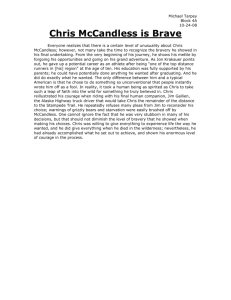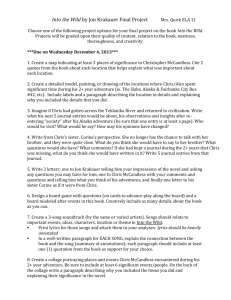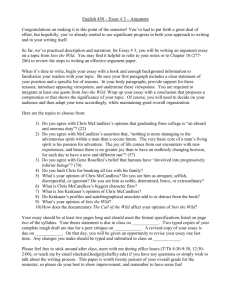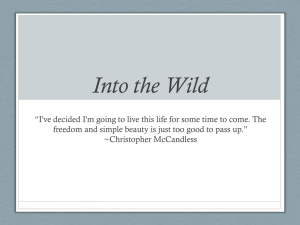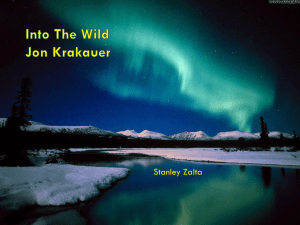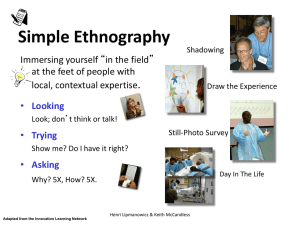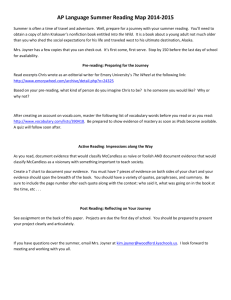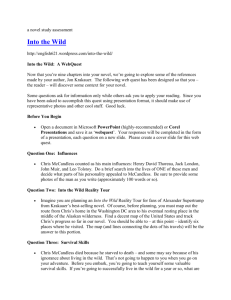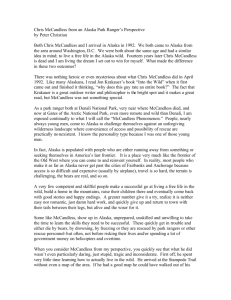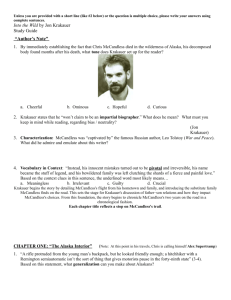Into The Wild Essay Topics: Analysis & Discussion
advertisement
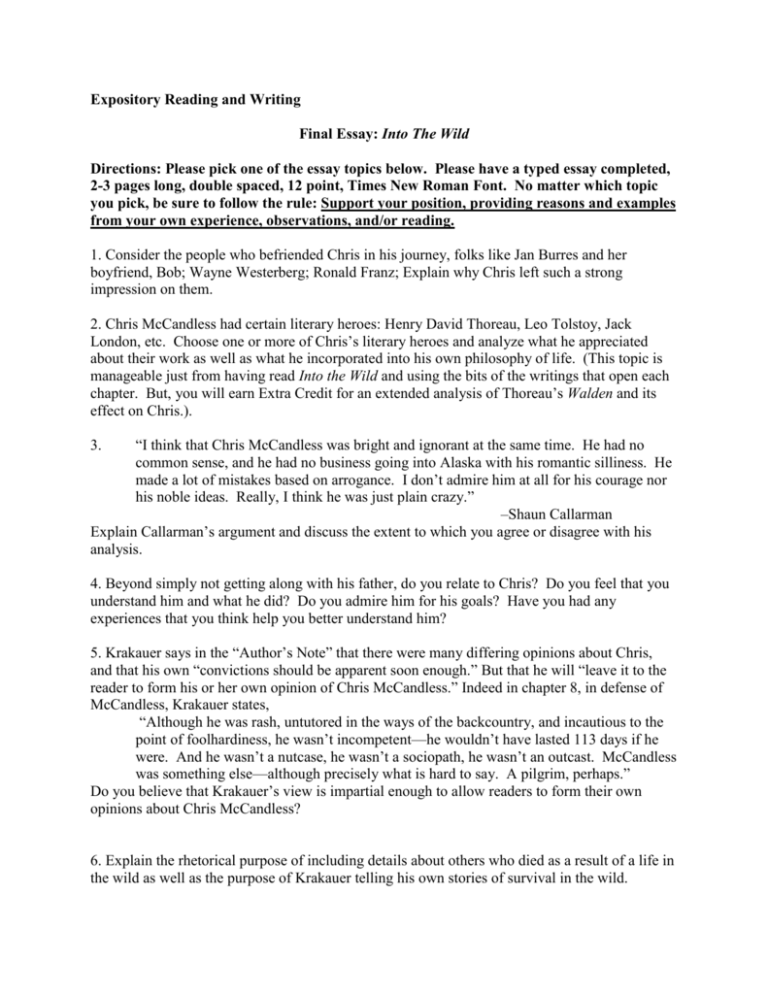
Expository Reading and Writing Final Essay: Into The Wild Directions: Please pick one of the essay topics below. Please have a typed essay completed, 2-3 pages long, double spaced, 12 point, Times New Roman Font. No matter which topic you pick, be sure to follow the rule: Support your position, providing reasons and examples from your own experience, observations, and/or reading. 1. Consider the people who befriended Chris in his journey, folks like Jan Burres and her boyfriend, Bob; Wayne Westerberg; Ronald Franz; Explain why Chris left such a strong impression on them. 2. Chris McCandless had certain literary heroes: Henry David Thoreau, Leo Tolstoy, Jack London, etc. Choose one or more of Chris’s literary heroes and analyze what he appreciated about their work as well as what he incorporated into his own philosophy of life. (This topic is manageable just from having read Into the Wild and using the bits of the writings that open each chapter. But, you will earn Extra Credit for an extended analysis of Thoreau’s Walden and its effect on Chris.). “I think that Chris McCandless was bright and ignorant at the same time. He had no common sense, and he had no business going into Alaska with his romantic silliness. He made a lot of mistakes based on arrogance. I don’t admire him at all for his courage nor his noble ideas. Really, I think he was just plain crazy.” –Shaun Callarman Explain Callarman’s argument and discuss the extent to which you agree or disagree with his analysis. 3. 4. Beyond simply not getting along with his father, do you relate to Chris? Do you feel that you understand him and what he did? Do you admire him for his goals? Have you had any experiences that you think help you better understand him? 5. Krakauer says in the “Author’s Note” that there were many differing opinions about Chris, and that his own “convictions should be apparent soon enough.” But that he will “leave it to the reader to form his or her own opinion of Chris McCandless.” Indeed in chapter 8, in defense of McCandless, Krakauer states, “Although he was rash, untutored in the ways of the backcountry, and incautious to the point of foolhardiness, he wasn’t incompetent—he wouldn’t have lasted 113 days if he were. And he wasn’t a nutcase, he wasn’t a sociopath, he wasn’t an outcast. McCandless was something else—although precisely what is hard to say. A pilgrim, perhaps.” Do you believe that Krakauer’s view is impartial enough to allow readers to form their own opinions about Chris McCandless? 6. Explain the rhetorical purpose of including details about others who died as a result of a life in the wild as well as the purpose of Krakauer telling his own stories of survival in the wild. 7. Compare Krakauer’s book to the film directed by Sean Penn, starring Emile Hirsch. Does the film paint a very different picture from that portrayed in the book? Do you feel that the film does Chris McCandless justice? Explain what you see to be key differences between them in regards to your idea of Chris as a person.. 8. Explain McCandless’s attitude regarding civilization versus nature. Also discuss his feelings about the government and law, family, friends. Try to explain McCandless’s worldview and what kind of person he was. 9. Explain what you see as McCandless’s idiosyncrasies and/or hypocrisies. 10. The word “hubris” is Greek for excessive pride. Speaking about his own forays into nature, Krakauer says, “The fact that I survived my Alaska adventure and McCandless did not survive his was largely a matter of chance; ( . . . ) Eighteen years after the event I now recognize that I suffered from hubris, perhaps, and an appalling innocence, certainly; but I wasn’t suicidal.” Compare this idea to your understanding of McCandless. Do you think it is an accurate way to see McCandless?
